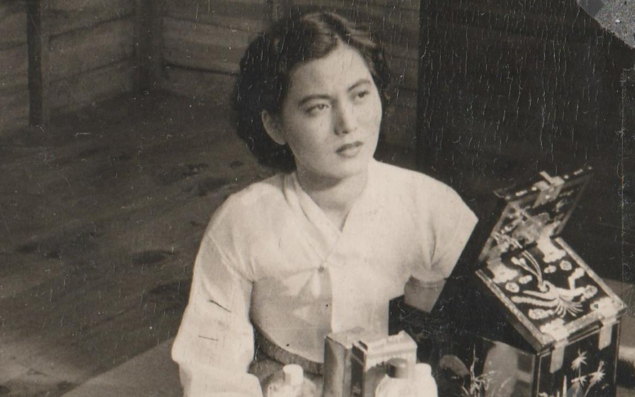The first Korean film directed by a woman: a story of personal emancipation against the backdrop of a post-war country. Russian premiere as part of the retrospective programme of the Festival of Singular Films.
The Widow
- Date:
- 26 Sep 2024,
16:00–17:15
- Age restrictions
- 18+
Mimangin
1955, Park Nam-ok
Republic of Korea
75 minutes, Korean with Russian subtitles
Starring: Min-ja Lee, Seong-ju Lee, Tak-kyun Lee, Ae-shim Na
The bloody Korean War is over, and many women from both warring sides are now widows with small children. One of them is Shin-ja in Seoul, unemployed and penniless with a daughter to look after. A friend of her late husband finds her a job as seamstress, but at the same time constantly flirts with her, to the displeasure of his own not-so-faithful wife. Another young man will soon come into Shin-ja’s life—but many obstacles will lie on the way to their happiness.

Shot from The Widow, 1955
The film shies away from melodrama and features both motherhood and the institution of marriage with a lucid and realistic look.
— Darcy Paquet, Far East Film Festival
The first striking feature of The Widow is its modern approach to the theme of women’s role in society. While Korean cinema has persistently cast women who yield to their desires in a negative light, Park Nam-ok defends her heroine’s right to seek both financial independence and a happy private life. In illustrating her story, Park uses inventive techniques with editing and cinematography inspired by Italian neorealism.
The film itself also became a story of personal emancipation: Park Nam-ok was not only the country’s first female director, but was also pregnant when the film was made. The men’s club of the Korean film industry prevented the movie from being widely released, and Nam-ok Park emigrated with her family to the United States and never worked in movies again. Nevertheless, her amazing debut, miraculously found in the late 1990s, remains not only an artefact of its time, but also an example of rare formal freedom. The last 15 minutes of the film have been lost forever (and the preceding 10 minutes have no sound)—and in this incompleteness there is both a bitter symmetry with Pak’s truncated career, and a peculiar beauty that allows viewers to imagine their own ending for this long-suffering movie.
The screening will begin with a brief speech by the curator in Russian. If you require interpretation into English, please request it at least three days in advance by emailing international@ges-2.org.

